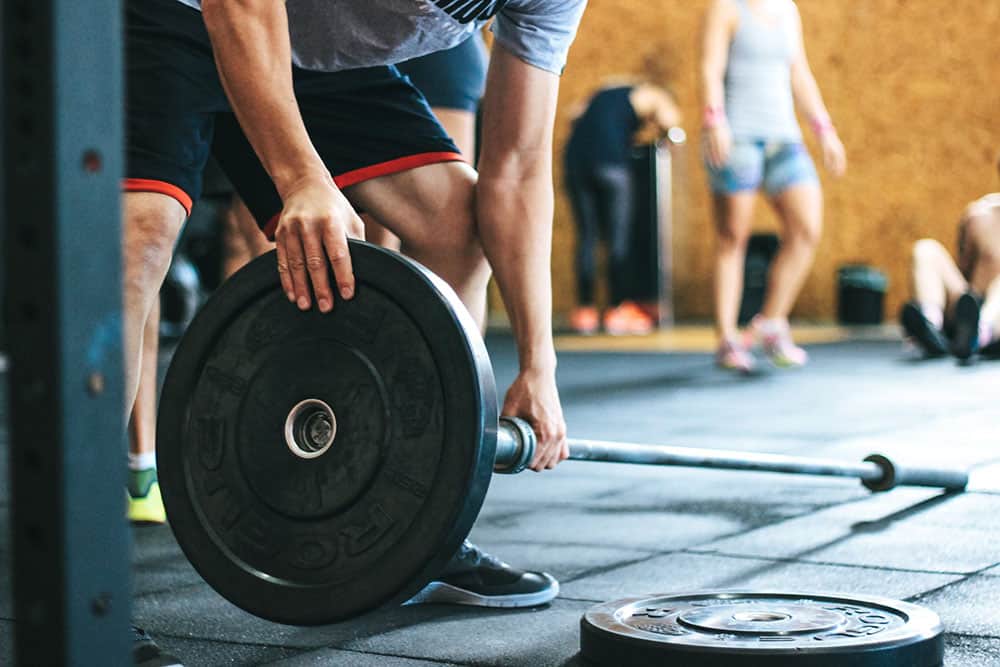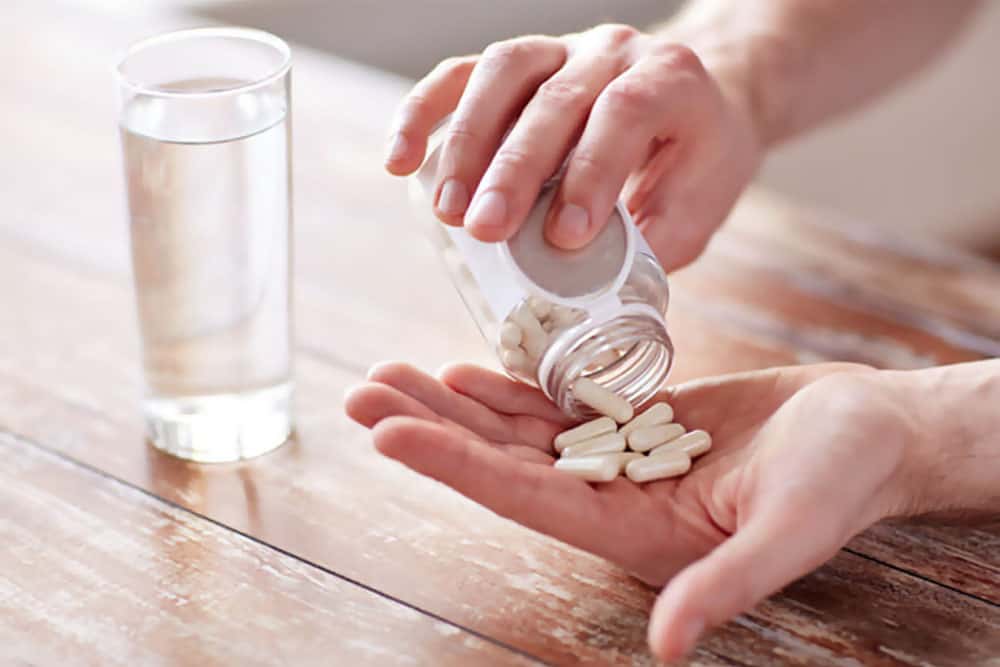Should You Take DHEA to Get More From Weightlifting?

Over the past 20 years medical science has come around to and embraced resistance training as one of the most beneficial types of exercise a person can do (1), regardless of their age (2). It’s now known that weight lifting provides a multitude of benefits including:
- Increased strength
- Enhanced cardiovascular health
- Enhanced bone health
- Weight control
- Higher energy levels
- Arthritis relief
- More stable blood glucose
- Better mood
- Lower risk of serious injury
- Improved mobility
- Relief from stress and anxiety
- Enhanced cognitive function
- And more…
What was once considered a niche activity with little intrinsic value is now considered one of the best ways for men and women to remain physically vital and reduce their risk of injury and disease. Given all that, it’s no surprise that people would A) engage in weight training and B) would look for safe and effective ways to get even more from their efforts. Enter DHEA.
In the past few years DHEA has become a favorite of weight lifters everywhere, driven at least in part by studies that purport to show that DHEA supplementation can increase muscle mass and overall strength, particularly in older individuals (3). But are these benefits consistent and substantial enough to warrant DHEA supplementation? In most cases the answer seems to be “Yes”.
How it Works
DHEA is what’s called a “prohormone” (4) that is produced naturally by the body. It’s called a prohormone because it’s sole purpose is to be converted into other hormones, primarily testosterone and estrogen. (At least researchers believe that is its primary purpose. The fact is, there are still quite a few questions surrounding DHEA that remain unanswered.)

DHEA production slows considerably as a person ages until it is just a fraction of its peak production when a person reaches their 60s and 70s. Because it is one of the building blocks of testosterone less DHEA means less testosterone. That, in turn, means reduced muscle mass, reduced strength, weaker bones, and fewer oxygen-carrying red blood cells.
Conversely, more DHEA should mean more testosterone and having more testosterone available dovetails nicely with muscle and strength building agenda of people who life weights.
No Dietary Source of DHEA
It all sounds simple enough: if you’re going to lift weights just start eating more foods that contain DHEA. But here’s the kicker: there aren’t any foods that contain DHEA. While you can get all the protein you need to support your muscle building efforts from meat and other foods, that’s not the case with DHEA. The only route available to you if you want to increase DHEA levels is supplementation.
The DHEA in supplements is artificially synthesized from yams and soybeans. (No, you can’t obtain DHEA from those foods. They simply contain certain chemical substances that can be altered to produce what are called “bioidentical” DHEA hormones (5).) That in itself may give some people pause to consider whether taking an artificially produced copy of a hormone is safe.
All we can say is that the FDA believes these supplements pose no immediate danger to normal, otherwise healthy people. There may, however, be some contraindications if you are currently taking certain antidepressants, anticonvulsives, antipsychotics, or undergoing another type of hormone therapy. If you are, or if you have any other questions or doubts, you should discuss the matter with your doctor before you start taking this type of supplement.
How Much DHEA Should You Take

There is little doubt that DHEA has a role to play in helping older individuals in particular get more from their weight lifting efforts. But how much should the average person be taking? The general consensus seems to be to start with a low dose, perhaps half the amount recommended on the supplement label, and then gradually build up from there.
Keep in mind that the average 20-something male produces something on the order of 30mg of DHEA per day at their production peak. There may be extreme circumstances where a doctor may prescribe 100mg or more per day to treat a specific health condition.
If, however, your reason for taking DHEA supplements is to get more from your weightlifting you should keep your dose modest. Most DHEA supplements provide anywhere from 10mg to 50mg, with most settling on 25mg. Again, if you are unsure discuss it with your doctor before starting you supplementation routine.
What Are the Risks and Side Effects of Taking DHEA?
As is the case with everything DHEA has its downsides. As we alluded to earlier you should discuss DHEA supplementation with your doctor if you are:
- Taking antipsychotic medications.
- Taking medications to control a seizure disorder.
- Taking Lithium for a bipolar disorder.
- Taking antidepressants.
- Taking Halcion to treat insomnia.
If you are these or other medications to treat any of the above conditions you should talk to your doctor before taking DHEA. The primary risk is that DHEA may reduce the effectiveness of the prescription drug. Or, in the case of Halcion (6), increase the effect.

If you are not currently taking any medications you should nonetheless be aware that DHEA has been known to generate side effects in some (certainly not all) people who take it. These side effects include:
- Difficulty urinating
- Headaches
- Flu-like symptoms that linger
- Acne
- Loss of appetite
- Nausea and/or vomiting
- Stomach pain
- A sense of fatigue
- Excessive hair growth in women
- Light-colored stools
The Bottom Line
DHEA plays a vital role in the production of testosterone and therefore can influence the results of your weight lifting program. Younger people are unlikely to experience any huge benefit from DHEA supplementation, since their bodies already produce ample DHEA and testosterone. But studies indicate that older people stand to reap significant benefits if they choose to add DHEA supplementation to their strength training routine.
Keep in mind that if you are currently being treated for seizures, insomnia, bipolar or other disorders you should discuss the matter with your doctor before you start taking DHEA supplements, as it may interfere with the effectiveness of any drugs you have been prescribed.

